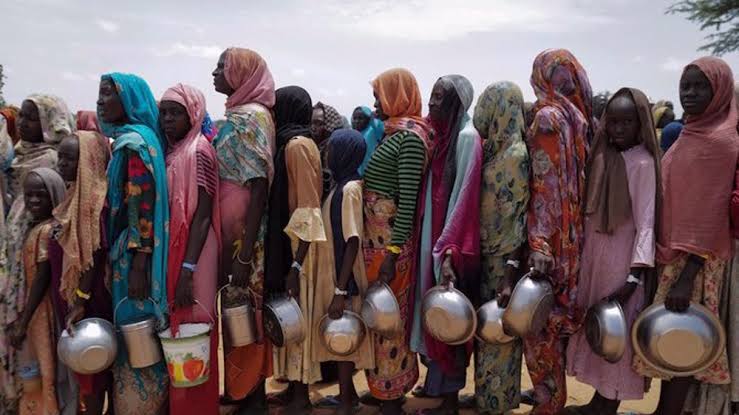A staggering 733 million people worldwide faced hunger in 2023, according to the latest State of Food Security and Nutrition in the World (SOFI) report published by five United Nations specialized agencies.
This translates to one out of every eleven people globally and one out of five in Africa, with the number rising on the continent.
The report highlights that access to adequate food remains elusive for billions, with around 2.33 billion people globally facing moderate or severe food insecurity in 2023.
This number has not changed significantly since the sharp upturn in 2020, amid the Covid-19 pandemic.
David Laborde, the Food and Agriculture Organization’s director of agri-food economics, emphasizes that solving the problem is a political choice and depends on the amount of money invested.
“Today, we produce enough food on this planet to feed everyone. So, if we want to solve the problem by 2030, it’s technically feasible,” he says.
However, hunger in places like Sudan and the Gaza Strip has been dramatically worsened by ongoing conflicts.
The report predicts that if current trends continue, about 582 million people will be “chronically undernourished by 2030,” half of them in Africa.
Laborde stresses that chronic hunger is a crisis impacting people not only in the present but also in the future. “Pregnant women, kids who face malnutrition problems today will pay the price all their lives. So, by not solving the problem today, we are basically impoverishing these countries in the future.”
The report identifies food insecurity and malnutrition as worsening due to a combination of factors, including persisting food price inflation, conflict, climate change, and economic downturns.
These issues, along with underlying factors such as unaffordable healthy diets, unhealthy food environments, and persistent inequality, are now coinciding simultaneously, amplifying their individual effects.
Achieving the Sustainable Development Goal of Zero Hunger requires a multi-faceted approach and targeted interventions, including transforming and strengthening agrifood systems, addressing inequalities, and ensuring affordable and accessible healthy diets for all.
The UN agencies are calling for increased and more cost-effective financing, with a clear and standardized definition of financing for food security and nutrition.







